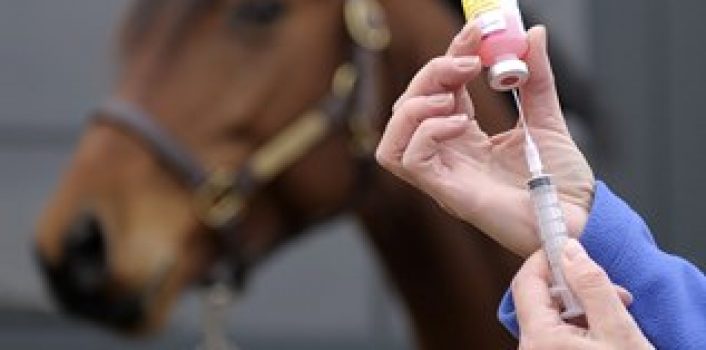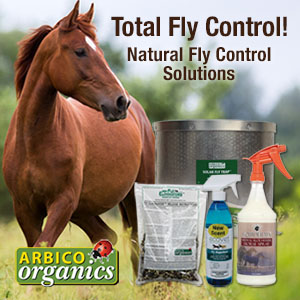The American Association of Equine Practitioners (AAEP) has created a list of vaccines that are recommended for all horses. These vaccines include Rabies, Eastern & Western Equine Encephalomyelitis, Tetanus and West Nile Virus. Horses who have never been vaccinated will require an initial vaccination followed by a booster given approximately one month later. After the first year, vaccines are given on an annual basis to maintain immunity against each of these diseases.

While the costs of the initial vaccinations and the following annual boosters may seem expensive, it is important to consider the reason for vaccinating your animal. First, vaccines can provide a degree of protection against diseases that could be potentially deadly. Second, routine vaccinations can protect your horse against diseases carried by horses that your animal may come in contact with throughout the year. Third, the cost of treating a sick animal far exceeds the cost of these vaccinations and the associated veterinary fees.
You might consider that vaccines can serve as a form of insurance for your horse. Rabies is an infrequently encountered viral infection of the central nervous system. It is transmitted through contact with infectious saliva, usually via a bite from an infected (rabid) animal; is highly fatal and is transmissible to humans. In horses, the incubation period can range from three weeks to three months. Signs of rabies could include excitability and mania. In addition to aggressive behavior, the horse may have muscle spasms, difficulty swallowing, paralysis, and convulsions. Horses that have been exposed to rabies may be placed into quarantine for an extended period for observation by public health officials. If the owner cannot afford this option, the horse is usually euthanized, and the brain must be submitted for further testing. Individuals who have come into contact with the animal may need to receive a series of rabies vaccinations themselves.
Eastern & Western Equine Encephalomyelitis (EEE, WEE) are viral diseases that also affect the central nervous system. These viruses are spread by mosquitoes and may cause symptoms including fever and depression. These problems may be followed by periods of hypersensitivity, apparent blindness, and lack of coordination. The treatment of both EEE and WEE is difficult because of the rapid progression of the disease. The mortality rate of WEE is slightly better at 50% compared with 90% for EEE. A veterinarian may have to assist with feeding the horse and providing intravenous fluids to give the sick horse any chance at recovery.
Tetanus is another disease that affects the central nervous system. However, unlike the previous diseases, tetanus is not transmissible from one animal to another. This disease is caused by the toxin Clostridium tetani which is found in most soil and in the intestinal tract and feces of horses. This toxin usually enters the body through a wound and spreads throughout the body by way of the nervous system. Signs of infection include stiffness of the head and neck region. Muscle spasms make it difficult for the horse to eat or drink; a condition commonly referred to as “lockjaw”. A veterinarian may be able to give antibiotics, intravenous fluids and feeding to keep the horse alive. They may also give tranquilizers and muscle relaxants to provide further relief.
The West Nile virus is a mosquito-borne disease that causes encephalitis or inflammation of the brain. This disease was first discovered in the U.S. in 1999. Signs of West Nile may include stumbling or lack of coordination, weakness of limbs, and partial paralysis. Approximately two out of three horses who are diagnosed with this virus survive the disease under the care of a veterinarian. Generally, treatment consists of supportive therapies including anti-inflammatories and intravenous fluids.
Although one might consider the risk of their horse contracting any one of these diseases to be relatively low; ultimately the cost of providing treatment and/or the risk of losing your horse all together far exceeds the cost of providing annual vaccinations. Based on the activities your horse performs and the area in which you live your veterinarian may recommend different vaccines; however, most veterinarians will recommend a minimum annual vaccine schedule which includes rabies, EEE, WEE, tetanus, and usually West Nile.
Provided by Granville Veterinary Service, Large Animal of Granville, New York.
Related Articles & Free Email Newsletter Sign Up
3 Handy and Inexpensive Horse Care Ideas
How Horses Have Evolved During the Last 50 Million Years




Comment here